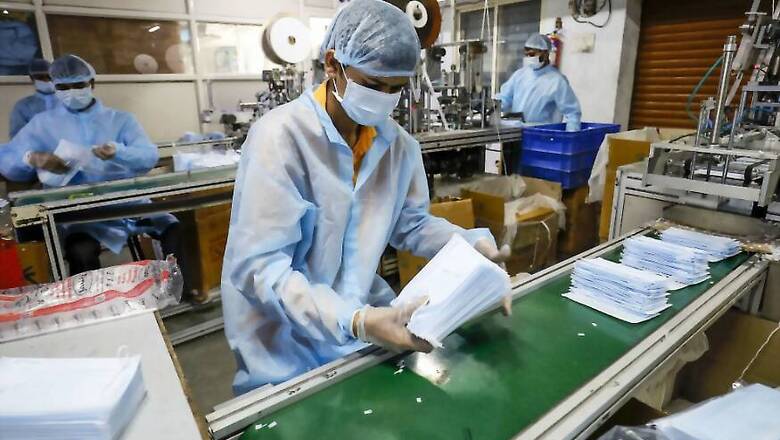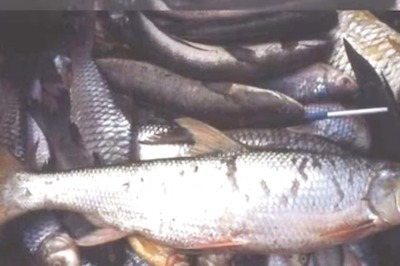
views
The Covid-19 situation has left them staring at huge losses, but the Tirupur textile cluster has turned to making masks and personal protective equipment (PPE) kits for hospitals in times of this crisis. And in it, they see a new ray of hope for the future as well.
Tirupur, which hosts India’s largest ready-made garments hub, supplies textile worth Rs 50,000 crore (domestic and overseas) with 1,112 units employing more than 6 lakh people, mostly migrant workers. The novel coronavirus situation across the world, and a few of their overseas clients filing for bankruptcy earlier, have stalled their business. With clients cancelling orders, most of the seasonal wears, goods worth around Rs 9,000 crore are going to waste.
The Tirupur Exporters' Association has written to the central government seeking permission to resume business as competitors in countries like China and Bangladesh are working without lockdown. However, that seems unlikely in the immediate future as Tirupur district is one of the worst affected with 79 cases as of April 15.
However, more than a 100 of them are now producing medical kits for supply around the country. What started as an emergency measure to help the district administration on a humanitarian basis has now turned into a full-swing business, with a peep into the future.
Until now, India has been largely importing textile for medical use; the centre even decided to purchase 15 million PPE kits from China for Covid-19 requirements. However, local manufacturers say it's time to look within the country.
"So far we had not produced PPE kits or medical masks. Our only experience is making masks for internal usage for within the factory workers," Raja Shanmugam, president of the Tirupur Exporters’ Association (TEA), tells News 18. "Masks are made out of non-woven fabric and so far we have been importing from China. Apart from one or two players, no one has given much importance to develop the trade within the country. But now due to the sudden demand, many have switched over to this. Initially we did on humanitarian basis to cater to hospitals within the district and state. Once we understood that we can manufacture any number of pieces using our own facility, many states including from north-east have started communicating with us. The order flow has only increased in the last few days."
In quick time, the Tirupur cluster has produced more than 20,000 PPE kits. The WHO-approved PPE kits are made out of a material called SSMMS, which has five layers with 60-80 GSM (grams per square metre). A couple of companies in the Tirupur cluster have also purchased a specific sealing machine to produce PPEs.
Even if they're unable to cater to the large demand of WHO-approved PPEs, Tirupur is making three-layer fabric kits for paramedics and other workers who aren't directly in contact with coronavirus patients for around Rs 200 each. Shanmugam says these cost much more when imported from China.
"For PPEs, the fabric must be impermeable," says Shanmugam. "That is the approved fabric for core medicos and attendants' usage. There are also three-layered fabric kits. The core medicos and attendants can't use that standard. But paramedics, the scavengers and others in the hospital who are not in direct contact with the infected patient can use these kits."
According to Shanmugam, this is just the start as the situation has shown them that they can broaden their horizons in future.
"In another month's time, Tirupurians will become a specialist in handling this. In the course of the journey, we will gain more confidence and expertise in handling global orders also," he says.
"Tirupur has always passed through challenges. With the accumulated expertise, I visualise that the entry into technical or medical textile arena will make more Tirupurians to plunge into it. The situation has turned into an eye-opener. There is a herd mentality in this cluster. When one person sees success, a hundred more will follow. The numbers will then multiply. It will eventually turn into an advantage. I have confidence that Tirupur will blossom in the coming years."




















Comments
0 comment